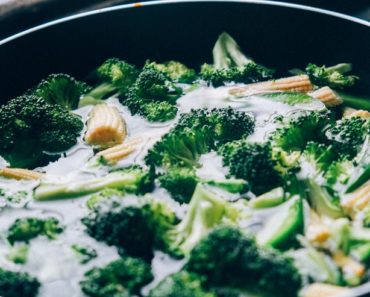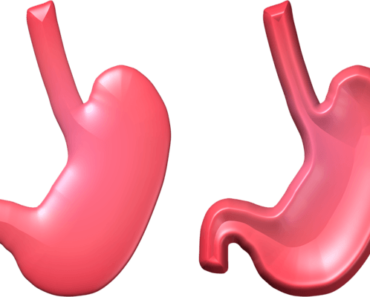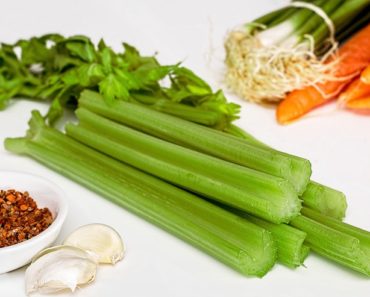

Anyone who suffers from migraines will tell you they’d do just about anything to avoid getting one. Sometimes the cause is hormonal or stress-related, but diet can also play a big part.
The foods most likely to spark a migraine are wheat, milk, cheese, chocolate, coffee, sugar, peanuts, pork, and chemical additives and preservatives, but specific triggers are different for everyone. Unrecognized food allergies are thought to be behind many migraines.
Because nausea and vomiting are often part of the migraine experience, many sufferers don’t really want to eat during one. However, staying nourished and hydrated can sometimes help to alleviate symptoms.
Skipping or delaying meals has also been tied to the onset of migraines, and you may even benefit from a bedtime snack to help keep glucose levels steady throughout the night. Stick with us to get armed with the knowledge of the best foods to eat, and when to eat them, to fight that nasty migraine.
Grains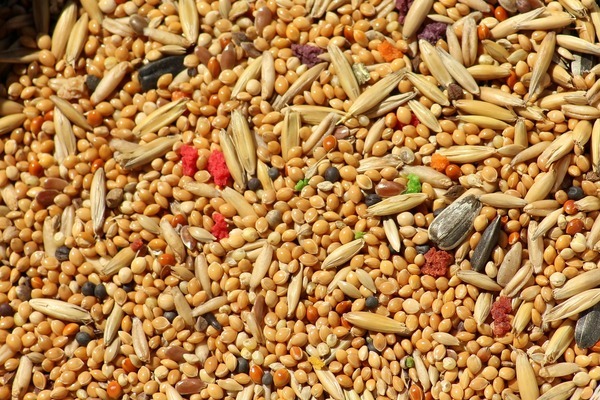
Fluctuating blood sugar is thought to be linked to headaches, and a good slow-burning carbohydrate can help keep this in balance. People who get migraines also often exhibit low levels of magnesium, so eating some magnesium-rich whole grain cereal or oatmeal is recommended.
Consuming carbs in the form of healthy whole grains allows the body to replenish its stores of glycogen, which is the primary source of fuel for your brain. Reduced energy to the brain also leads to dehydration, a major headache trigger.
One thing to note is that gluten can be a migraine trigger in some people. If this includes you, skip the wheat and stick to gluten-free grains such as quinoa, rice, millet, amaranth, and corn.
Fish and Meat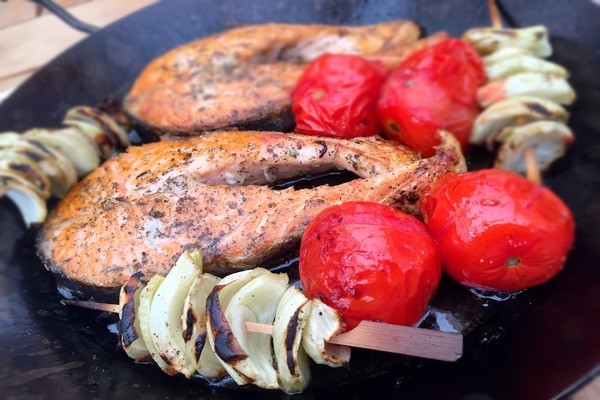
Taking in some essential fatty acids, such as those found in high concentrations in salmon, mackerel, and trout, tend to reduce inflammation and pain in the body. That can translate into lesser intensity headaches, and regular consumption may even prevent the onset of a migraine.
Vitamin B6, found in turkey, chicken, beef liver, and tuna, is great for increasing serotonin levels in the brain. Serotonin acts as a natural antidepressant that is also linked to the body relaxation that occurs before sleep. Foods high in B6, therefore, may reduce headache symptoms.
Nuts, Seeds, and Legumes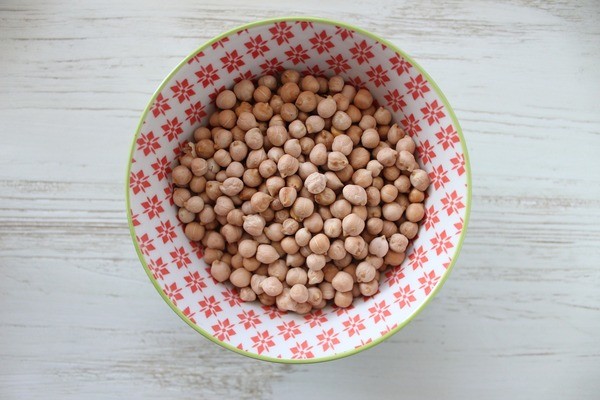
Foods such as almonds, cashews, sesame seeds, brown rice, black beans, peas, and other legumes are also high in magnesium, and may help relax blood vessels. Adequate blood flow is thought protect against painful headaches and migraines.
Sesame seeds are additionally rich in vitamin E, which helps to both balance estrogen levels and improve circulation. Therefore, they may help prevent migraines that occur due to hormonal shifts during or just before a woman’s period.
Fruits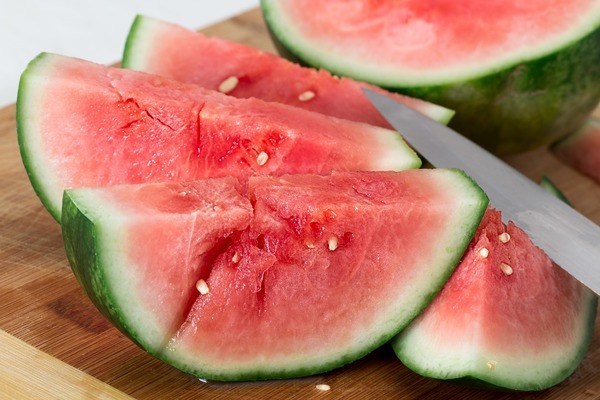
Fruit is an excellent choice to both prevent and treat a migraine for several reasons. First is that it usually has a high water content, and dehydration is a major cause of headaches.
Watermelon is fantastic if more water is your goal. Many fruits also contain magnesium and other minerals thought to prevent or ease headache pain – think apples and avocados. Fresh pineapple is a good source of bromelain, an anti-inflammatory enzyme, as well as water. The potassium in bananas can be helpful, too.
Fruit Warning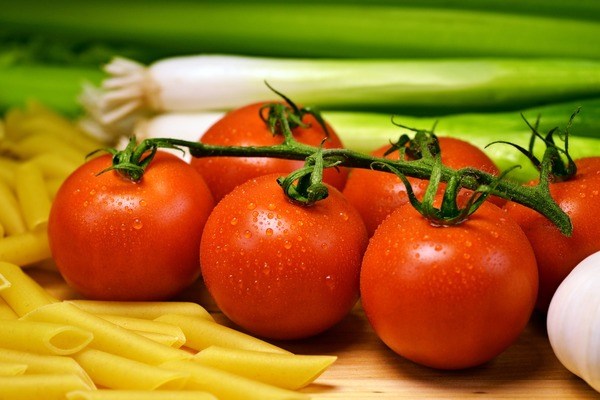
However, certain people are sensitive to citrus fruits, bananas, and apples, and may find that those fruits trigger an attack. We recommend keeping a headache journal to determine whether you fall into this category.
If it doesn’t bring on or worsen symptoms, fruit is ideal to eat during a headache because it is light and easy to prepare. The last thing anyone wants to do while suffering a migraine is to stand and cook for an extended period of time.
Spices and Seasonings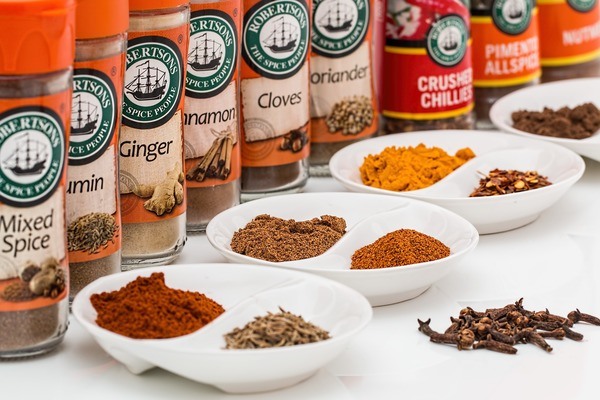
Herbal tea with lemon slices is thought to be soothing during a headache. Tea with marjoram especially can reduce headache pain. Cinnamon and rosemary are also known to prevent or lessen headaches.
Ginger root has anti-inflammatory properties that help to reduce the painful swelling that can lead to headaches. On the flip side, some spices and seasonings often cause or exacerbate headaches.
Avoid at all costs foods that contain nitrates, found in processed meats, and monosodium glutamate (MSG) which is used in many seasoning and spice blends. These additives are known migraine triggers.
Caffeine
Caffeine may play a role in reducing the pain of migraines, which is why it is found in most over the counter migraine medications. However, it appears to work best in people who do not take caffeine on a regular basis.
So morning coffee or tea drinkers may not get much benefit due to the brain’s tolerance of the chemical. And unfortunately, caffeine withdrawal can also trigger migraines all by itself.
We don’t know exactly how caffeine affects a headache, but it is thought to have something to do with the fact that adenosine levels in the blood go up during migraine attacks; caffeine blocks adenosine receptors. It also tends to constrict blood vessels, which swell during a headache.
Water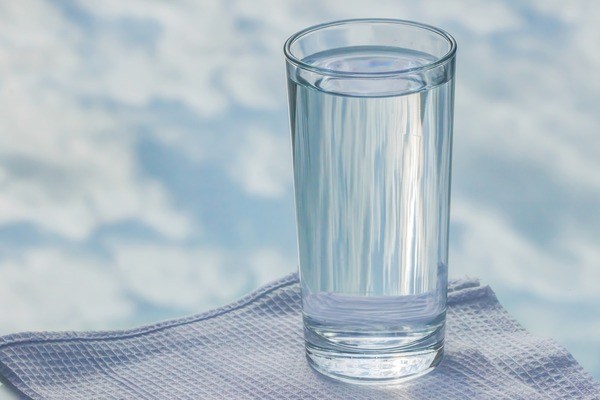
Getting back to basics, you must keep on top of your water intake every day if you suffer frequent migraines. Water is essential for everything that the body does, and dehydration is the most common trigger of migraines.
You can also hydrate with herbal tea or reduced fat milk, but it’s best to steer clear of sugary fruit drinks and sodas. Sweeteners and other artificial ingredients in these beverages can sometimes trigger migraines.
Migraines are incapacitating in their severity and accompanying symptoms, like nausea and light sensitivity. We hope that attention to the common food triggers for migraines will help you suffer less often, and that eating a certain way during an attack can reduce the symptoms and duration.
Many headache sufferers keep a journal of what they ate or did prior to the onset of a headache so that they can avoid the same triggers in the future. Please speak to your doctor about whether there are medications that can also help to reduce the pain enough to help you stay focused on proper nutrition and hydration while in the midst of a migraine.

